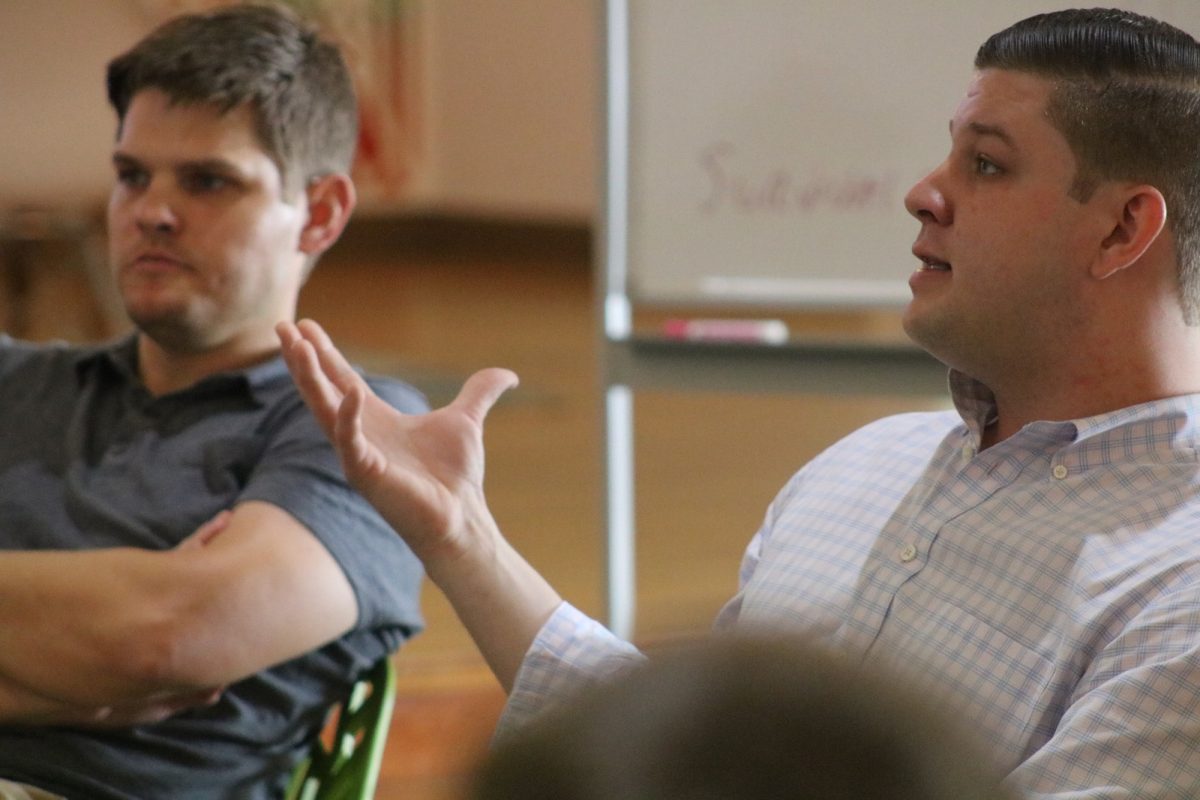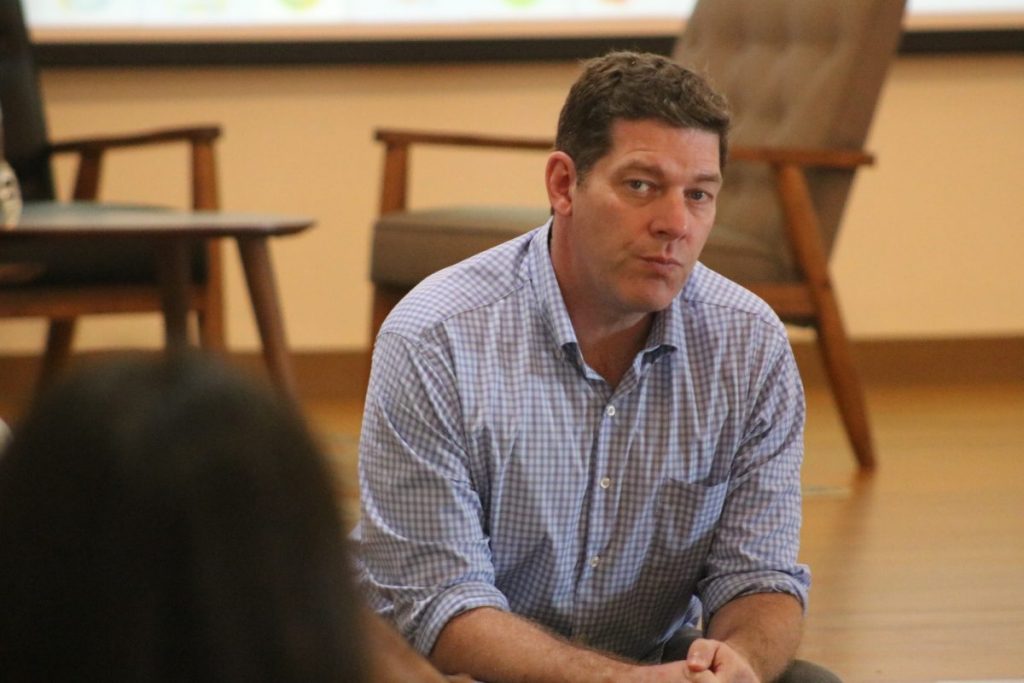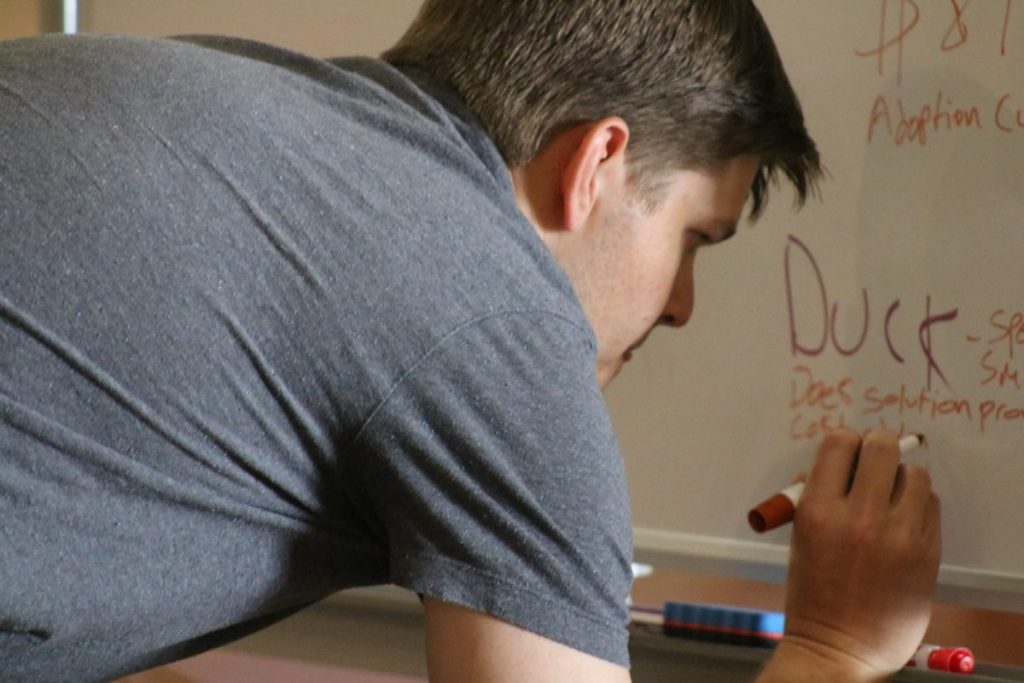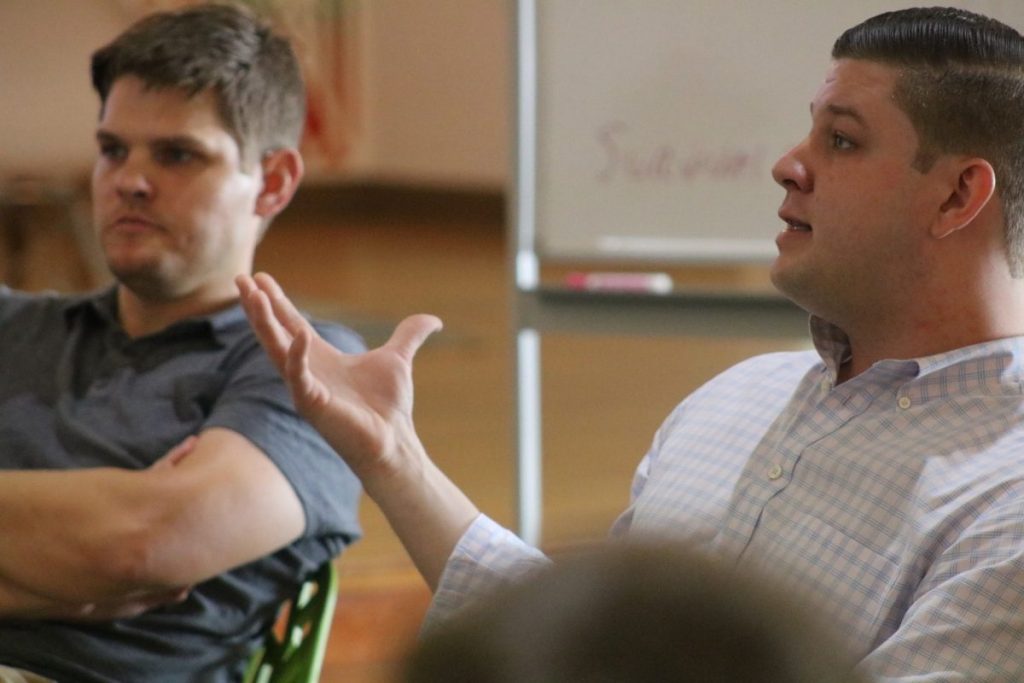
Michael Wilson’s graduate-level business class at the University of Miami is unlike anything he’s taught before. In fact, it’s so unique that he had to invent a new word to describe it: “polyineering.”
At its core, this philosophy is based on five key words: engineer, pioneer, entrepreneur, pollinator and designer. Wilson calls polyineering a “term of art.”
“Too often in a college setting, we accept whatever’s told to us as Gospel, but in the real world, you have to mitigate risk,” Wilson said. “You have to look beyond just trusting. You have to do the research beyond Wikipedia.”

In other words, you have to be a polyineer, someone who takes a hands-on, interdisciplinary approach to problem solving, Wilson said, and his class is designed to promote this entrepreneurial attitude. Local business owners give presentations that replace textbooks. Class discussions facilitate communication that replaces essays. Most significantly, the students’ ultimate goal is not to ace a final exam– their goal is to start a business by the end of the semester.
In order to achieve this ambitious objective, the bulk of each class involves students discussing their entrepreneurial ideas. Anything goes, from a magnetic blanket that speeds up the bed-making process to a creative solution to the duck feces problem on campus. Wilson said he’s a “sage of the stage” rather than a traditional professor.
“I’m more of a facilitator, and this is causing great havoc amidst the students because it’s out of their comfort space,” he said. “They’ve never really had the opportunity to paint on a clean canvas.”
Despite the “havoc,” Geoffrey Rowan, who is seeking his master’s degree in business administration, said he enjoys the class’s open-ended structure. “I think it’s more effective because we get to have an open dialogue, whereas in other classes, it’s this one way or the highway,” he said.
John Quelch, dean of the Miami Business School, said Wilson’s approach to teaching is valuable because it encourages a “collective sharing of wisdom.”
“Individual students and student teams are creating their own chapters in their own textbooks, and then they have to share their learnings with each other,” Quelch said. “That makes for a much more powerful learning environment.”
In addition to creative thinking, diversity is an essential component of polyineering, Wilson said. Of the 15 students in the class, less than half are working toward their MBA. The rest of the group is made up of other talents, including biomedical engineers, law students, PhD candidates and computer scientists.
Wilson synthesized the idea for this class while he was a doctoral candidate at Purdue University. He said he saw a rich diversity of opinion and background in every startup that he’s been involved with, but felt most traditional classrooms don’t reflect the ever-changing reality of entrepreneurship. That’s why he opened the class to non-business students– he wanted to challenge young people to think outside their comfort zones and encourage them to see problems from a new perspective.
“I think it’s really magical to see how a group of unknowns come together,” Wilson said. “The journey of it is always tricky and sensitive and confrontational, so it’s this bag of emotion. I enjoy watching students get lessons in the least expected corners of the class.”

And it’s not just the students’ majors that differ. The group collectively speaks eight languages, plays eight instruments and holds a slew of different certifications, ranging from a BB&T Leadership Certification to a Marine Mammal Stranding Certification. The students come from backgrounds in business, science, engineering, technology and even zoology.
Bindu Sivakumar, who studied computer science as an undergraduate and is now pursuing her MBA in business analytics, said her background allows her to bring a more technical viewpoint to many of the class’s conversations. In turn, the longtime business students teach her how to better pitch her ideas.
“The connectivity between diversity and creativity and performance is well established, so it’s very important that a course like this be open to students from across the university,” said Quelch.
The wide range of viewpoints in the classroom has led to an equally diverse range of ideas and enterprises. The group is currently initiating two separate businesses, with some students also working on side projects.
The first business idea, called Box of You, seeks to spread polyineering’s principles to disadvantaged communities and foster entrepreneurship across borders. The students are working with Office Depot to create physical and digital boxes of supplies that can be sent to people around the world. These packages will be tailored to their particular destinations but will always include a variety of business tools such as course curriculums and data collection devices.
The second idea, called Q Pay, will construct a mechanism for businesses to complete money transactions more efficiently. Students working on this project visited Soho Beach House, a popular restaurant and club in Miami Beach. They noticed that people were using credit cards to pay for every single drink, wasting receipt paper and backlogging the computer. As an alternative, the team is working on a virtual system that will allow users to pay via virtual ID, bringing the payment system to each individual’s smart phone rather than placing the burden of repeated transactions on the restaurant’s internal servers.
MBA student Scott Westphal said working on these projects has helped him to redefine what it means to be an entrepreneur.
“I signed up to take this class because I have never heard of anything like it in my life,” Westphal said. “I never considered myself an entrepreneur. I’ve never really been interested in considering myself an entrepreneur, but I have always seen the value in molding your mind to be on the creative side.”
Creation is at the heart of polyineering, and Westphal said that’s what makes the class so interesting. He said surrounding himself with “output focused individuals” has consistently inspired him to dive into creation.

Sivakumar said her connections with other students are so powerful they often give her goosebumps.
“Every class is so different in terms of interactions, which is not what I’m used to,” she said.
Wilson is currently in the process of selecting the students who will make up next semester’s polyineering class. He said the current team will work through the summer to turn their ideas into realities, and next semester’s students will also continue the legacy of this inaugural class while working on their own projects.
Wilson said he is hoping to eventually expand the class to the undergraduate level. But in the meantime, he’s looking for graduate students who are willing to fully embrace every aspect of polyineering.
“Do they want to use the term entrepreneur on their resume or do they actually want to get dirty?” Wilson said. “It’s a contact sport. It’s not for the faint to heart.”





